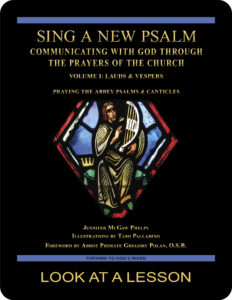vengeance
 In the Old Testament, vengeance is a common theme, but one that often is viewed negatively in the Christian world. In the Gospel According to Matthew 18:22 (NABRE), for example, Jesus urges his followers to forgive as much as seventy times seven, a suggestion that runs contrary to vengeful behavior. In light of this shifting perspective, it’s easy to lose sight of the important role God’s vengeance plays in the Old Testament.
In the Old Testament, vengeance is a common theme, but one that often is viewed negatively in the Christian world. In the Gospel According to Matthew 18:22 (NABRE), for example, Jesus urges his followers to forgive as much as seventy times seven, a suggestion that runs contrary to vengeful behavior. In light of this shifting perspective, it’s easy to lose sight of the important role God’s vengeance plays in the Old Testament.
Vengeance is a paying back for a wrong committed, and can be seen as a form of justice or of evening the balance. The idea of vengeance first enters the Old Testament in the fourth chapter of the book of Genesis, in which Cain expects to be killed as a result of murdering his brother Abel. While Cain doesn’t welcome a death sentence, he sees it as just. God has other ideas, however. The LORD keeps Cain very much alive while at the same time allowing Cain to experience the consequences of his actions. While vengeance is God’s to give—as is justice—it typically does not always take the form we might expect.
What other examples of God’s vengeance can you think of from the Old Testament? What impact do you think that Jesus had on Christian understanding of this concept?
you also may like Volume I of our Psalms study
 Sing a New Psalm: Communicating with God Through the Prayers of the Church—Volume I: Lauds & Vespers provides an in-depth look at Psalms prayed in morning and evening liturgies. (Volume II, set for publication in 2024, looks at Vigils, Day Prayer & Compline.) The study is based on The Abbey Psalms and Canticles, a translation prepared by the Benedictine monks of Conception Abbey and published by the United States Conference of Catholic Bishops (USCCB). Click on the book’s cover to view a sample lesson.
Sing a New Psalm: Communicating with God Through the Prayers of the Church—Volume I: Lauds & Vespers provides an in-depth look at Psalms prayed in morning and evening liturgies. (Volume II, set for publication in 2024, looks at Vigils, Day Prayer & Compline.) The study is based on The Abbey Psalms and Canticles, a translation prepared by the Benedictine monks of Conception Abbey and published by the United States Conference of Catholic Bishops (USCCB). Click on the book’s cover to view a sample lesson.
 Click on the picture of the statue of Moses with horns (above) to learn more about Lost in Translation. A new entry is archived each Monday. Contact us to receive Lost in Translation by email every week. You may use any of the contact links on our website to ask Matthew a question.
Click on the picture of the statue of Moses with horns (above) to learn more about Lost in Translation. A new entry is archived each Monday. Contact us to receive Lost in Translation by email every week. You may use any of the contact links on our website to ask Matthew a question.
